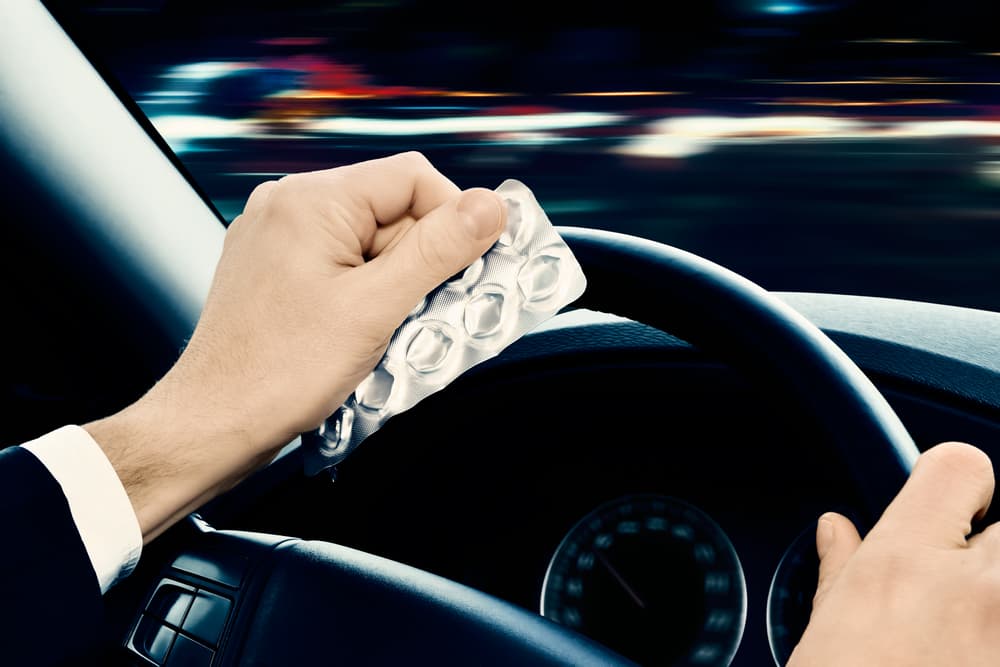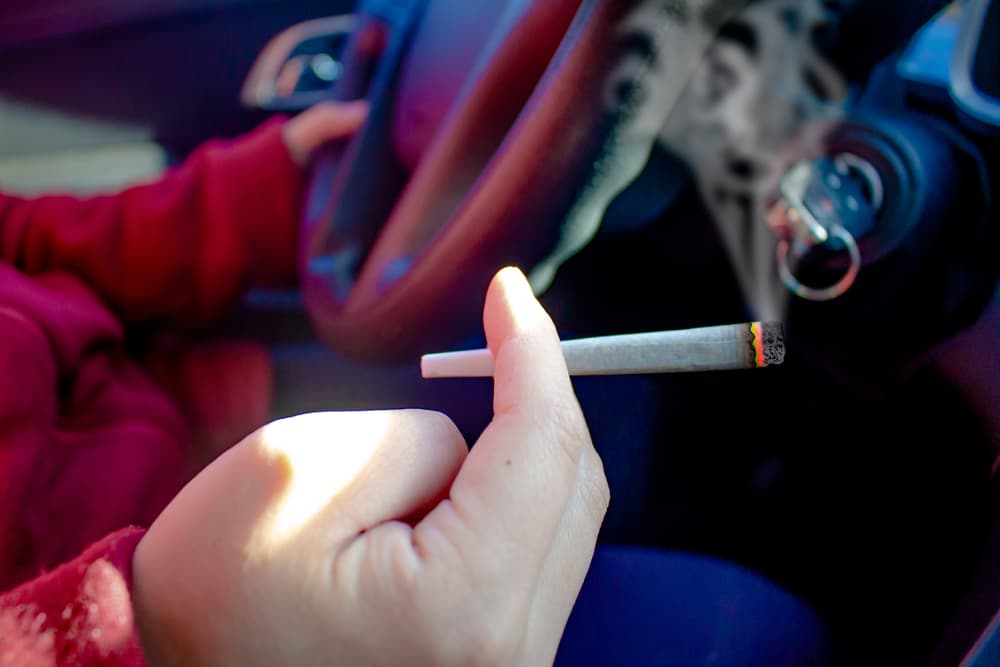Driving while intoxicated is, unfortunately, nothing new, but when the topic comes up, most people probably think of alcohol use and drunk driving. Drugs, whether prescribed or illegal, are also a very real threat to safe driving. Driving drug-impaired is dangerous; at the very least, it can lead to legal trouble. It also puts everyone on the road in serious danger and can lead to death.
Illegality isn’t the only, or even the biggest problem with driving under the influence of drugs. These substances, whether prescription or illicit, lead to difficulty driving. Slowed reaction times, sleepiness and aggressiveness are just a few dangers. Most people understand what makes drinking and driving dangerous, but how common is drug-impaired driving?
If you or a loved one has been the victim of a car accident caused by a drug-impaired driver, reach out to a skilled car accident lawyer for legal assistance.
Schedule a Free Initial Consultation Today!
The Drug-Impaired Driving Rates Have Gone Up
Drug-impaired driving has increased in the U.S. over the years. Research from participating trauma centers shows that serious injuries or fatalities on the road reveal the prevalence of cannabinoids, opioids, as well as alcohol has gone up. It’s part of a public health emergency.
Laws are complicated and differ by state. The National Highway Traffic Safety Administration (NHTSA) follows more than 400 drugs and each one affects all drivers differently.
As time progresses, states need more data and research to help understand how drug-influenced driving can and should be handled. The NHTSA launched an initiative to address issues surrounding drug-impaired driving.
This National Drug-Impaired Driving Initiative combines the knowledge and talent of law enforcement, drug and drug abuse experts, prosecutors, and more to research and create strategies to address the problem.
Why is Drug-Impaired Driving a Problem?
Intoxicating drugs impair a person’s ability to drive, sometimes just as much as alcohol. Drugged driving puts the driver, passengers, and everyone on the road at very serious risk. The way they do so depends on the drug and its symptoms or side effects.

People simply cannot drive safely while impaired, no matter how slow they go or how remote the highway. That is why every state bans drving under the influence of both legal and illegal substances when driving, whether it’s alcohol or prescription medications, or marijuana and cocaine. Driving while taking drugs puts everyone at risk.
Marijuana, for example, usually relaxes the mind and body, thereby slowing reaction times, and impairing the ability to judge distance, and time, or to identify objects. It can also decrease coordination.
However, another important and dangerous aspect of drug use is the inability to predict side effects.
For some, marijuana causes heightened anxiety, panic, or paranoia. In that case, driving while high can lead to extreme and aggressive reactions. Drivers whose drug choices are amphetamines or cocaine may also drive aggressively and recklessly.
Some prescription medications cause drowsiness and dizziness. This impairs cognitive judgment and leads to crashes, too. Research shows that marijuana use can lead to bad reaction time, lane weaving, and sudden vision changes. The same can be said for opioids and other drugs that cause dizziness and sleepiness.
Drug Side Effects Include Risks of Crashing
Studies show that using these drugs could double your risk of a crash.
- Just a few of the risks involved in taking common drugs include:
- Slow judgment, poor coordination, and bad reaction timing
- Aggressive, panicked, and reckless driving
- Amplified side effects caused by combining medications or alcohol
- Drowsiness, dizziness, vertigo, and other related sensations
Drug-impaired drivers can’t properly evaluate how impaired they are, which is another reason why people taking substances should not drive. Even mild drug side effects can affect how a person drives.
In addition to all the possible medication side effects that could cause impaired driving, there is no certain way to predict when or how they will affect a driver.
Long-time use may offer some insight into a user’s potential reactions, but sudden changes in side effects do happen, particularly if the drugs are mixed with other substances.
It’s hard to determine how drugs will affect drivers because many people mix their substances, particularly with alcohol. We know that even small drug amounts, just a few milligrams, can have enough of an impact to impair driving.
Because of this, some states have zero-tolerance laws against drug impaired driving. This means that the driver can face changes they drove under the influence of drugs at the time of the crash.
Many people who use drugs and then find themselves in an accident have also combined the substances with alcohol, making it difficult to determine which caused the accident, and to what degree either contibuted to the accident. Many states are waiting for improved research before they develop laws around testing and drug intoxication levels.
According to a National Survey on Drug Use and Health (NSDUH) survey, approximately 13.5 million people over 16 years old drove while intoxicated by alcohol in the year prior, and more than 11.7 million drove while taking drugs like marijuana.
This also revealed that men are more likely to drive when taking drugs and alcohol, and adults in their early 20s are more likely to do it than teenagers.
Next to alcohol, marijuana is the most common drug consumed by impaired drivers. To detect marijuana after an accident, the driver’s blood must be tested for tetrahydrocannabinol (THC). Despite this test’s availability, marijuana’s role in car crashes is still unclear.
THC remains in the body and is detectable for days, even weeks after use. And, since users often mix it with alcohol, discovering THC after a crash doesn’t always indicate that it caused the accident. Car crash risks may increase when users mix marijuana with other substances more than when they use it by itself.
Studies show that drivers with THC in their system are almost twice as likely to cause a car crash or die in one than those who did not use any substances. However, a significant NHTSA study could not trace a noticeable increased risk to marijuana use.
Overall, most agree that it will take more time and study to determine just how risky THC in the system is when it comes to driving.
It’s hard to determine how often drug-impaired driving causes car crashes. Many factors can contribute to a car crash, and when you add substance use, you add many other potential issues:
- Drivers who cause crashes often have more than one substance in their system; which is responsible for the crash might not be clear.
- Police don’t typically test for anything other than alcohol at the scene, sometimes because high alcohol levels are enough to pursue a DUI.
- Reliable drug tests for accident scenes don’t exist yet.
- Some drugs stay in the body for weeks after use and after effects have worn off, making it hard to know if they caused the accident.
Some studies have shown that a large percentage of deaths on the highway did involve drug use, and even more of those drivers were using multiple substances.
Who is Most Affected by Drug-Impaired Driving?
It’s no surprise that teens and adults are involved in drug-related crashes most. Teens are less experienced drivers and are likely to rebel via drug experimentation.
Combining less experience, their tendencies to behave erratically and do things like speed, and the poor reaction times drugs can cause is often lethal. Vehicular accidents are the leading cause of death for teens 16 years and older.
Studies involving college students also reveal that this group is more likely to drive under the influence of alcohol or drugs, and often both. Marijuana was the most common drug found in drivers’ systems after crashes. Cocaine and pain relievers were also common.
After these two groups, older adults taking prescription drugs are the next likely group to be affected by drug-impaired driving. These adults over 50 years of age may take prescription medications that affect their mental faculties. Some also do not take the proper amount or take them as directed.
These and other factors can lead to unintentionally driving while intoxicated. If the adult drinks alcohol, this can make the situation even worse.
It’s Illegal to Drive While Drug-Impaired

Driving while drug-impaired is fully illegal in all 50 states, as well as the District of Columbia. Police are trained to determine if a driver’s behavior indicates they might have driven while impaired. Even in states where marijuana is legal, people cannot drive when they’ve consumed it.
However, the laws vary from state to state. In some states, statutes dictate that, after a crash, the prosecution must prove the driver was impaired.
Evidence may include video of erratic or reckless driving. Some states have laws prohibiting the operation of a car or other vehicle if testing reveals a certain drug level. Other states have no tolerance, and their laws make driving illegal if authorities discover any substance quantity.
Any substance that can affect your mental faculties is considered illegal to use while driving. This includes legally purchased drugs like prescription medications.
If a driver chooses to operate the vehicle after taking an intoxicating legal prescription, they could face penalties. Narcotic pain medications, for example, can cause drowsiness that makes driving unsafe.
If a Drug-Impaired Driver Injures You, Call a Lawyer
You can hope to never experience a car crash involving drug-impaired driving. If you’re wise, you’ll never attempt to drive while on drugs. But, you cannot control the actions of others. It helps to know your rights in a situation like this.
Hire a Lawyer Immediately
Once you handle all important matters at the scene, search for a lawyer. It’s even better to have a good attorney’s number on hand in case of emergencies.
If you’re not at fault, you shouldn’t have to worry about paying out of pocket. Your attorney will obtain payment for you once the case concludes. Your lawyer will take fees from the settlement.
Your lawyer acts as your advocate for your rights to monetary coverage for damages, loss, and medical expenses. If you don’t have an attorney, you risk insurance companies taking advantage by offering you far less than what you deserve, so call a personal injury lawyer today.




























